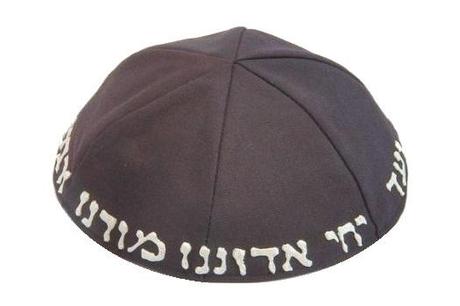According to Walla, the soldier serves in the Nahal Haredi brigade. When he was told by his commander to change his kippa, as it is prohibited by the army to wear a kippa with writing on it, he refused. He explained to his commander that his kippa is part of his faith and he wears it according to the instruction of his rabbonim, as do all his friends associated with the same stream of Chabad Judaism.

The commander did not accept the response and said that if he does not change his kippa he will end up in military court. The soldier tried to involve his rabbonim to use their influence to persuade the commander to allow the soldier to wear the kippa, but it did not help.
The director of the organization for religious soldiers, along with others form Nahal Haredi, have said that the commander went overboard. If they expect to draft many haredim, they will need to be more sensitive to the various needs. If a Golani soldier had worn a kippa with the tesxt "My Golani" embroidered in it, would they make him switch it?
The IDF Spokesperson simply responded that it is illegal to wear a kippa with text on it in the IDF.
The army can't be a free-for-all. If tomorrow some soldiers will insist on wearing white shirt and black pants instead of green uniform and say it is part of their faith, should the army allow it? Perhaps the rabbonim who tried to intervene should have used their influence on the soldier to have him switch his kippa instead - there is no obligation to wear a kippa with any specific text on it, and they could have given him an allowance to write the Yechi and put it in his pocket or maybe have it on the inside of the kippa instead of on the outside... But also, on minor things perhaps the army should be more sensitive on cultural issues, like this one. As said, is this rule enforced equally throughout the army? If they can be sensitive to some soldiers, maybe out of unit pride or for whatever reason, they can be sensitive to other soldiers as well.
------------------------------------------------------ Reach thousands of readers with your ad by advertising on Life in Israel ------------------------------------------------------
